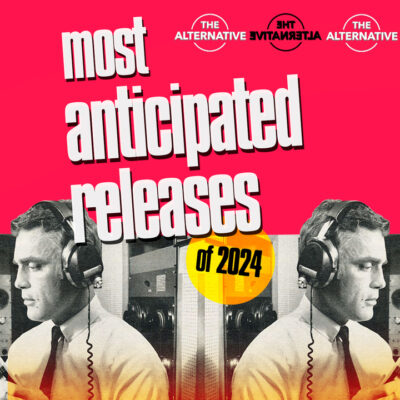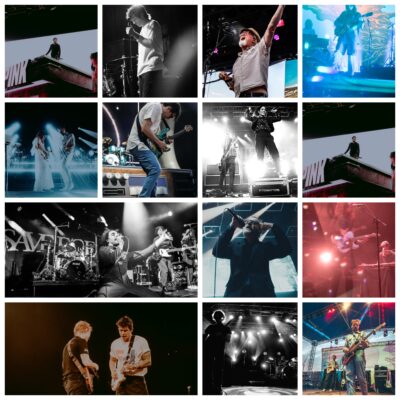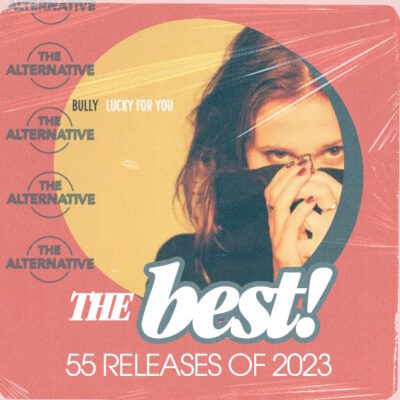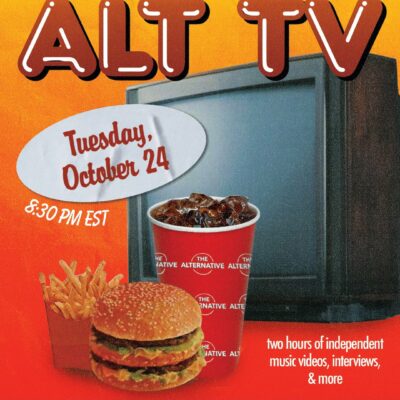Interview: Better Yet host Tim Crisp talks connecting to artists
Posted: by The Editor
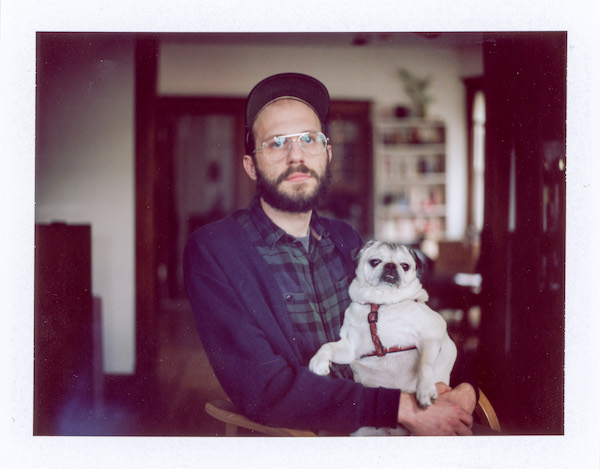
Photo by Johnny Fabrizio
Better Yet opens every episode with a booming, cheery “HEY ALRIIIIIGHT,” followed by a rolling introduction to the guest of the week. Better Yet, an in-depth interview podcast hosted by Tim Crisp, has cemented itself as the go-to for the most expository show in independent music.
Each week, Tim speaks to a different player in the music community, a local or a touring act passing through Chicago. Three years and nearly 125 episodes later, he has created a community of artists, creators, makers, and more. Each episode is packed with enriching conversation, expository stories of songwriting and personal experiences, and the occasional bark from Chloe the pug.
The Alternative spoke with Tim about the early days of the podcast, important moments from the interviews, his vision for show, and how to grow as a host.
The Alternative: How did you approach starting Better Yet?
I had been thinking about it for a while and I wanted to just do something. There were plenty of interview podcasts that went for a long time, an hour or hour plus, and I felt like this was such an untapped place for those types of conversations. I had been mulling on it for about six months or so, then we were going into spring in Chicago. I always get this bolt of energy that makes me want to do something and in that season, it was do the podcast.
What was it for you when you booked your first guest to record with for the podcast?
The first couple were just friends of mine. After I posted the first episode, that day I booked an interview with Jordan from Rozwell Kid. I didn’t think I had any business getting a hold of him even though we had a mutual friend. I thought, “Well, he’ll want to hear the podcast and I’ve only got one episode, and it just went up today. He’s not going to want to waste his time with me.” Within 45 minutes, he was like “Yeah, I’ll talk to anybody.”
Then that episode went up. That was the first person that I was going to talk to wasn’t my friend.
That has to be so motivating to go through the process of recording your first interview and getting it out there. Did that push you to keep wanting to make more?
When I started to do it and started to reach out to people, and realized that people were going to be down to do it if they had the time to do it and any interest in doing it… I thought I was going to have to establish a name of some sort. I didn’t think anyone would want to do it.
I was lucky enough to get a lot of positive responses as I started to branch out and get in touch with people that to me were huge. A lot of encouraging things like that were what have kept me going and motivated, and feeling like I was doing the right thing.
What was your intent or mission for the podcast?
What I wanted to do was give something for people like me, who when you hear something and connect to it, you want to know more. When I hear a record, I want to go out and buy it so I can read the lyrics and look at the packaging and just get a general idea of who these people are and what they’re all about.
I think when it came to music, it was that it was being made by people who are kind of going through the same thing as what I was going through when I graduated college and was working at a crappy job and trying to pay student loans and was eating bad food and trying to be an adult. That was kind of a moment of connecting to people who were my age who were writing songs about going through the same thing I was, as opposed when you’re like fifteen and something speaks to you, but it’s still by an adult. There’s still a little of the separation.
I’d find a couple of Blogspot interviews but it just wasn’t satisfying what it was that I wanted to know – “What’s going on with you? It looks like you’ve read a couple of books that I’ve read too. Tell me about how you found these things that supplemented your art.” That’s what I want to know – I want to know as much context as I can about what went into making this. It’s all of my favorite music and none of that was available, and if it was, it was rare and I’d chew on that for a long time, as long as I could.
One of the things that I really like about your interviews is you don’t just find out this but you reveal the artists as people, too. They’re not just people that we see on stages but they are regular people, too.
I think that was an appeal to it too because it’s people that are mostly doing something for their job that’s just to supplement their creative self. They’re working for nine months out of the year so they can tour as much as they can or they can go make a record. When you talk about people who are mostly not doing music for a living, there’s all of that external shit, too, and that’s special.
You talk to people who I think of veterans in music. It’s so amazing how you tap into their lives, for those are established and those who are at their beginning, too.
It’s been amazing to have been doing this long enough to get good at reaching people at the right times. What started as wanting to talk to people working in this sphere. I’ve been able to go out in a couple different directions but still keep the core idea of getting to know these people for how they exist and how they found themselves doing what they’re doing in whichever medium.
It’s neat how you’ve branched into not just covering people who play music but who write about music or are involved in other ways, too.
Yeah, I want to do more of that. This is always an interesting time for me because being in a place like Chicago, there are so many great people in so many great bands. I’ve been doing it for about three years now, so branching out to more people who write, or people like my friend Shannon who does PR for the Metro and some other bands, and I’m excited to have her over to tap into this extra facet of how we do things.
How do you decide who you want interview, and what are you looking for in the guests?
Honestly, I have just always gone by people that I like. I don’t think I’ve interviewed more than a couple of people whose music I just wasn’t that stoked on. I’ve talked to a lot of people from around here and I still do. On Mondays, when I open the coffee shop, I take my laptop with me because I have a couple of hours and just go through all of the different venues to see who’s coming. I see who’s coming through, who I might’ve missed, and I’ve got my calendar. I get in touch. If they’re down, they’re down and if not I’ll try again next time.
What’s it like when people come over for an interview?
When they first come over, they meet Chloe. She’s so excited and running around, super friendly. She loves meeting people – so how could you not be excited when you have this dough ball running around.
I always offer to make coffee and if they don’t want coffee or tea, I make myself coffee for the first five minutes for us to just talk about like whatever is going on for you today.
Every time I have somebody coming over, for the two to three days before, I’m just listening to them as much as I can. I’m reading in a little and just kind of developing my own narrative through the music, whatever press is out there. Here’s what I want to know about your time in the band and maybe these two or three crazy things that happened, the themes that you’re working with, whatever influenced your work. Whatever strikes me – it’s my show, it’s my questions.
It’s my show, I ask the questions around here.
Exactly. I know if it works for me, it probably works for whoever’s listening. If I’m asking questions that the person is engaged with, then ideally I get an engaged answer on the other side. As long as you’re making good conversation. If you’re onto good things, you’re onto good things.
I’m always surprised to hear artists revealing some parts of themselves to you, or something I wanted the answer to and then here it is.
You do it enough and you go in with a plan, but sometimes you get something you weren’t prepared for, something that is really interesting. You’re just able to let that be the thing that you go with and talk about. I’m comfortable with ditching the script for a bit.
You do a great job finding the common interest with your guests, too.
I think we all start in the same place. We’re all kind of a part of it because we went to a show when we were 14 and it changed everything. I always ask that question, “Did you grow up with music in the house?” and “When did you start playing?”… We all go down the same roads and see the same things in our beginning. Maybe we end up in certain places because of specific things, like there’s a Jawbreaker lyric about this author.
You share a lot about yourself on the podcast, too.
It took me a long time to get comfortable with the idea that was information anybody listening would be interested in. I think that it slowly pulls out of you as you’re getting more comfortable with speaking to an audience and ideally, an audience that listens to you regularly enough to where they are interested in the person who’s asking the questions. I think that for me creatively, too, that was a big part of this too.
I think that’s part of it, though because there’s this personal element while showcasing really talented people. You’ve worked with a ton of independent artists – do you ever feel like the DIY ethic influences you?
It’s kind of hard to not be political anymore, and I think that I approached this thing with a clear cut conversation with myself with, You’re a white dude who has a podcast. First of all, don’t let this be a podcast where you only talk to white dudes. Set that intention. From the outright, hold it.
I think that even as things keep going, I’ve felt that it was important for me to call shit when I saw it. I don’t really know too much about my listenership, but I wanted to make it abundantly clear that if there’s shit that needs to be discussed about gender politics, any nefarious shit that’s happening within this music scene, we’re going to talk about…I think that having the conversations I feel are important to let people know that are listening that you need to pay attention to this shit. You’re as much a part of the community as anyone else.
You really give a platform for artists to talk about issues, too. Do you ever feel like the guests you’ve interviewed that have influenced you as a podcaster or as a person?
I did an interview with Nnamdi Obgbonnaya early on and we ended up talking about a song he wrote for a friend who had committed suicide. I remember that all of my questions for him were about this 7” with a cover of these phone numbers for hotlines you could call. That shit was dark and I wanted to talk about the music being dark, but I brought up the packaging being an incredible, a profound statement. He just said that was his compromise for putting it out, that there were things songs and there was no hope on it. So that was the compromise to at least provide that. I just started crying because a friend of mine had killed himself a few months prior. The whole time going into this interview, that’s not what I’m thinking about, but [Nnamdi] just hit me with that. It was a really emotional experience and we just talked about it.
I didn’t know that this interview would provide this for me, and it’s done that so many times. It’s just being open with people and people opening up themselves when they write and put out their work… I’m wanting to know more about that place, not to intrude, but if they want to talk about it or something they want to share, the positives that they want to bring.
Going back to the creative side of it too, it’s kind of an incredible feeling to have that cathartic experience. Then you look at the episode itself and you’ve made this thing for somebody who is going to hear that and maybe gain something. They might think that they were glad to spend their morning with something like that.
It could be something that your listeners needed to hear that day. Do you feel like you’ve walked away with friendships after an interview?
… I always love the conversations that go interrupted, and it’s a lot easier for me to ask questions that are a little more direct. It’s been nice having this little space to carve out where I now have a reason to talk to this person for an hour, and I’m a prepared a little bit, so I have things to fall back on if I get a little nervous. But they usually go well. So it’s been nice to go out and see people that I wouldn’t have known nearly as well if not for this.
Bands come and go from tours in the city, and you’re probably seeing them live or revisiting their music after an interview. Do you experience the music differently after an interview?
I think what I experience differently are the things that are made after our talk. Even if I talk to someone who just had a record come out, their next one is probably halfway written already because they had to wait for the vinyl to be pressed… It’s always exciting when someone puts something else out because it’s like “I love what you did there.” Maybe I have a little insight into why they took this direction, or if somebody makes a left turn. I gain so much joy out of knowing the context.
Who is somebody that you’d like to record an episode with that you haven’t talked to yet?
I would really like to talk to Frances Quinlan of Hop Along. Get Disowned is the best record of the last 10 years. When I came into the thing, she was just at the top of the list. She’s dropped a record since then that is so good. She’s just got so much going on vocally, lyrically…
I’d really like to talk to Sadie Switchblade. The Dyke Drama EP, I was listening to that a lot in that winter before I started. I’d like to talk to her about Dyke Drama and G.L.O.S.S.
There’s a bunch of Chicago people I want to talk to, too, like the Kinsellas or Steve Albini. I’d like to knock those off of my list.
How do you feel you’ve grown as a podcast over time?
I think that I’ve just gotten more comfortable with being able to talk to somebody and being able to talk to a person on whatever level they’re on. Whether it’s a good day, bad day, someone who’s done a lot of interviews or no interviews. I’ve become really good at feeling just really good about the show, the friends I get to make, and the things I learn while doing it, and just take that all in.
You have three podcasts going between Better Yet, As You Were, and PostMarkdom, so you’re hardly an amateur. What advice would you give someone who wants to start a podcast?
Figure out what you want to do and do it. Know that what you want to do might not be exactly what ends up coming out, but follow what’s working. Go in with a good idea, do it, and don’t stop doing it right away… It’s developed into something that is a little bit different and a lot better. I think that making it happen and letting it happen is pretty key.
Follow Better Yet on social media:
Twitter // Facebook // Instagram // Patreon
–
Amanda Starling // @StarlingAj
The Alternative is ad-free and 100% supported by our readers. If you’d like to help us produce more content and promote more great new music, please consider donating to our Patreon page, which also allows you to receive sweet perks like free albums and The Alternative merch.






